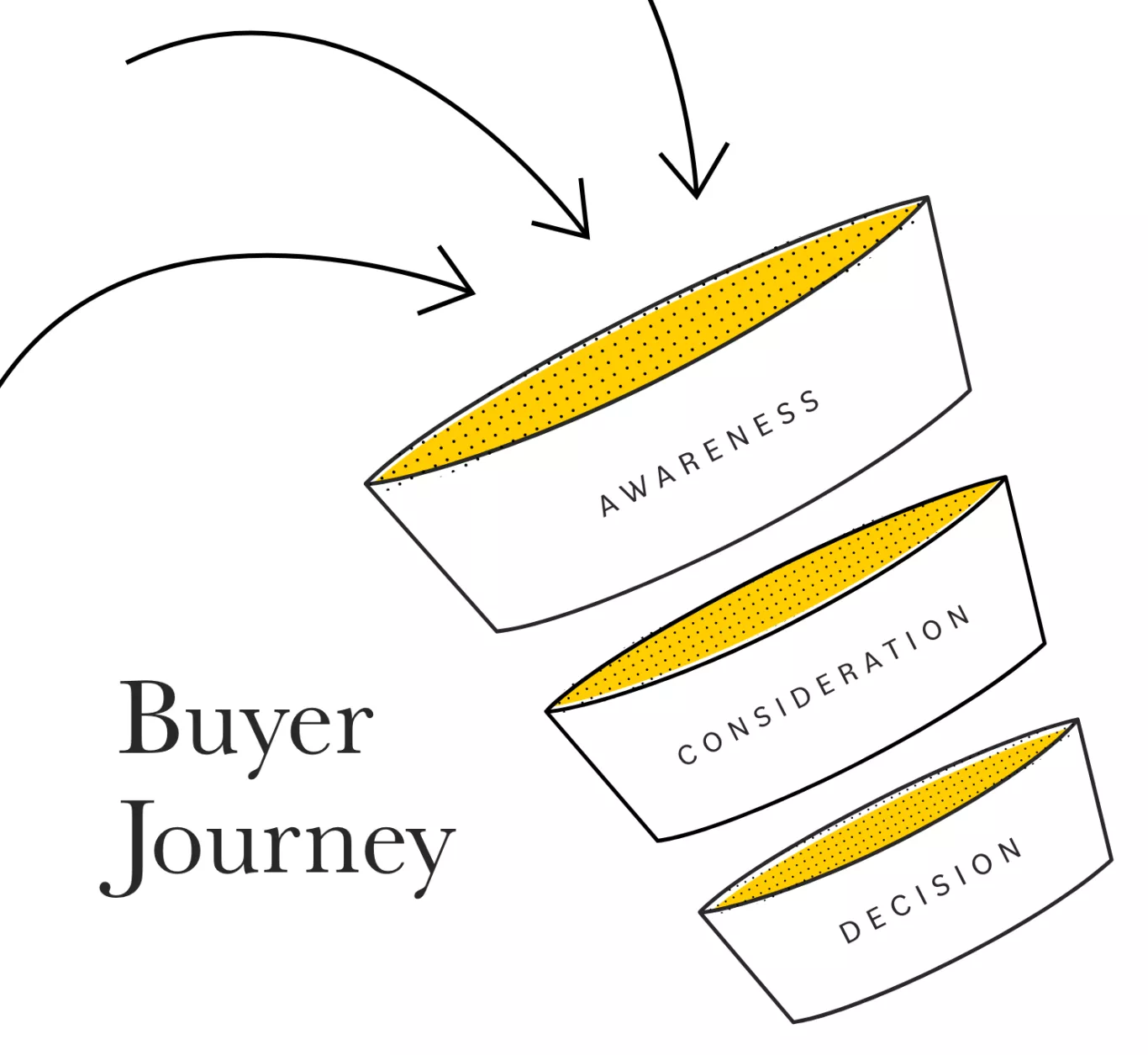In Business-to-Business (B2B) marketing, especially for the manufacturing industry, it's important to understand the different touch points you can use to connect with potential clients. This article delves into the nuances of the B2B marketing landscape, examining how the Rule of 7 in marketing applies to the manufacturing sector, and practical strategies for effective engagement.
What is the Rule of 7 in Marketing?
The Rule of 7 is a well-known marketing principle suggesting that a prospect needs to see an advertiser's message at least seven times before they take action to buy. Originating from the traditional advertising world and pre-dating the internet, this rule emphasises the importance of repeated exposure in building brand awareness and fostering customer decision-making.
Traditionally the rule of 7 applied to B2C marketing where sales cycles are typically much shorter and less complex than in B2B with few decision makers involved, often just one.
Does the Rule of 7 Apply to B2B Marketing in the Manufacturing Industry?
The Complexity of B2B Marketing
Yes, the Rule of 7 is relevant in B2B marketing but with a significant modification. It involves a lot more than just seven interactions. In industries like manufacturing the sales cycle is typically complex and long with multiple stakeholders involved in a purchasing decision. Industry marketing research reveals that although the sales cycles can occasionally be as short as 2-3 weeks this usually involves buyers who are almost ready to commit before initiating contact. However, these instances and short sales cycles are exceptions.
From our experience working across many companies in the manufacturing industry, the sales cycles can span over months or even years. During these periods, the organisation needs to interact with different stakeholders and provide them with varying types and quantities of content to persuade them about its suitability and solutions. RAIN Group, a global sales training company, estimates that an average of 8 touch points is needed to secure even an initial meeting or conversion with a new prospect.
According to research the number of touch points needed in B2B marketing is well over 40 and, in some cases, closer to 50. These touch points differ across the stages of the buying journey, which include:
Awareness: This is the stage where the buyer realises they have a problem that needs solving.
Consideration: At this point, the buyer clearly understands their problem and is actively searching for solutions.
Decision: This is the final stage where the buyer selects their solution.

Leveraging Marketing to Enhance Sales Success
Marketing goes beyond first-time engagement with prospects. It is vital in attracting and nurturing your target market throughout the entire buyer journey. This process starts with lead generation. Then, it involves collecting relevant information to help the sales team focus on the most promising prospects. Finally, marketing provides assets that build trust in your product, facilitating the final purchase decision.
This all means sales personnel spend less time on repetitive tasks and more on closing deals.
In companies with 100-500 employees, an average of seven individuals are involved in the buying process.
- wbresearch.com
Decision-Making in Larger Organisations
In companies with 100-500 employees, an average of seven individuals are involved in the buying process. This further multiplies the number of touch points needed, as each stakeholder may require more personalised engagement. Effective marketing strategies can help by providing tailored information and engagement to each stakeholder addressing the specific needs and concerns of each decision-maker. By doing so, marketing helps to build a cohesive narrative that resonates across different departments and levels of management, facilitating a more efficient decision-making process.
Additionally, marketing analytics and customer insights can be used to anticipate the needs and preferences of each stakeholder, allowing for more proactive and strategic engagement. In this way, marketing not only increases the efficiency of the buying process taking some of the load of the sales representative but also enhances the overall customer experience, leading to stronger relationships and higher satisfaction.

Well-cited statistics show that a typical B2B buyer is already 57-70% through their purchasing journey before they even engage with a salesperson.
- wbresearch.com
Progress Through the Buyer Journey
Well-cited statistics show that a typical B2B buyer is already 57-70% through their purchasing journey before they even engage with a salesperson. This underscores the importance of impactful touch points early in the buyer's journey. Effective marketing is key in raising awareness and shaping perceptions about your product.
These buyers gather insights from various sources, including offline methods like industry events and word of mouth, as well as online channels such as social media, review sites, and Google searches. Therefore, tailoring a dynamic and multi-faceted approach is crucial, as there is no singular method that guarantees success in engaging with potential customers.
A Staged Approach to Marketing Touch Points for the Buyer Journey
Navigating the three stages of the buyer's journey effectively requires a strategic and staged approach to marketing touch points. This method ensures that each stage of the buyer's journey is addressed with the right mix of digital and traditional marketing channels.
Stage 1 - Awareness
During this initial stage, as buyers begin to recognise their problems and needs, digital channels play a vital role. Some examples of channels that you can utilise to reach your desired audience:
- Organic Search: SEO-optimised content such as blog posts and webpages ensure visibility in search engines, attracting buyers who are seeking information.
- Social media: Platforms like LinkedIn are crucial for creating awareness among industry professionals.
- Paid Advertising: Targeted ads can help reach potential buyers at the outset of their journey.
Traditional marketing channels are also important in this stage too, for example:
- Events: Participating in industry events and trade shows can introduce your brand to potential buyers.
- Print: Brochures and flyers can be effective in creating initial awareness, especially when distributed at events.
Stage 2 - Consideration
In this second stage of the buyers journey it is important to engage your potential buyers with relevant content and conversations to showcase that your solution is the one for them and to begin to build trust. This can be done digitally via:
- Written Blog: Blogs provide in-depth information, helping to establish your brand as a thought leader, crucial for buyers who are evaluating options.
- Email: Personalised email campaigns can nurture leads by providing relevant and timely information.
Examples of blending digital and traditional touch points:
- Word of Mouth: Encouraging referrals and recommendations can influence buyers who are comparing options.
- Events: Continued engagement at events can provide opportunities for deeper conversations and demonstrations.
Stage 3 - Decision
The final stage of the buyer's journey is your chance to encourage the purchase of your solution. The below tactics can be used to support their decision:
- Email: Tailored email communication can address final queries and push towards the purchase decision.
- Social Media: Engaging directly with potential buyers on platforms like LinkedIn can provide that final nudge towards a decision.
- Personalised Digital Content: Utilising data analytics to provide personalised content and solutions that align with the specific needs of the buyer.
Maintaining a Balanced Approach
While digital channels are increasingly predominant, traditional methods like direct phone calls or face-to-face meetings at events can be crucial in closing deals, especially in B2B contexts.
In each stage, it's essential to utilise the appropriate mix of digital and traditional touch points to guide the buyer smoothly through their journey. This strategic approach not only enhances the buyer's experience but also increases the likelihood of successful conversions.
In conclusion, the complexity of B2B marketing, especially in sectors like manufacturing, demands an understanding of the buyer's journey and the effective use of varied touch points. The Rule of 7, while a guiding principle, needs adaptation to suit the intricate dynamics of B2B interactions. With a multi-staged approach, blending digital and traditional methods, businesses can navigate this landscape successfully. The role of marketing in this process is not just about initiating contact but nurturing leads through every stage, culminating in increased sales and lasting customer relationships.

How Maverick Can Assist
Maverick is a full-service brand and marketing agency. We specialise in crafting tailor-made B2B marketing strategies and marketing campaigns for the manufacturing, medical technology, and software industries. Our expertise lies in balancing digital and traditional marketing channels to create an optimal mix of touch points, ensuring that your message reaches the right stakeholders at the right time. With our guidance, your business can navigate the complexities of B2B marketing and effectively engage with your target audience, driving conversions and fostering long-term relationships.
Some examples of the marketing services Maverick provide:
- Brand rollouts
- Content development and copywriting
- Search engine marketing (SEM)
- Social media marketing
- Email marketing
- Case studies
- Website management
- Video creation
Learn more about partnering with Maverick, a marketing agency, for your manufacturing marketing strategy by exploring our insights.




